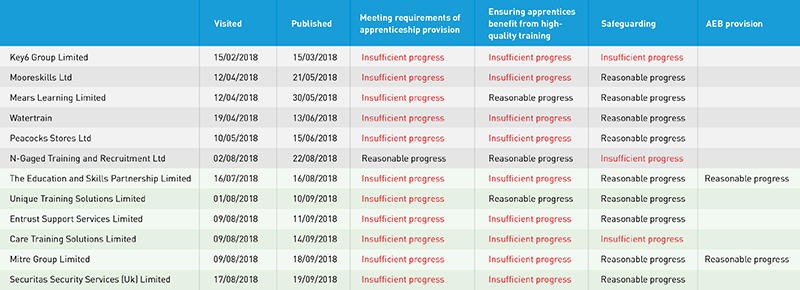The ambitious plans for T-levels will surely fail unless more well-qualified staff can be attracted to the sector, warns Simon Martin
In September we saw FE representatives from across the sector almost unanimously voting that the timetable for T-level implementation was “reckless”, at the parliamentary debate staged by FE Week and Pearson.
But even if the sector manages to pull off industry placements and the rushed tendering process, one problem will still seriously threaten T-level delivery – namely, the availability of sufficient numbers of well-qualified, experienced staff.
Department for Education papers and ministerial pronouncements have repeatedly described T-levels as “a skills revolution”, and most recently the education secretary Damian Hinds has extolled them as the “once-in-a-lifetime opportunity” to ensure the UK economy has the skilled workers it needs to compete globally.
Part of the wiring for this is the beefed up 900 hours per annum (1,800 over two years). Allowing for a top-end 60-day industry placement, that leaves 1,500 “classroom” hours, 25 per cent more than a 16-19 study programme top-funded at band 5 (around 1,200 hours over two years).
Even with increased qualification funding to match, that higher level of contact time will place a strain on the teaching establishments of institutions both large and small, which are already struggling with recruitment alongside funding and finances, as recent headlines testify.
The recruitment landscape looks problematic
The DfE reported in February that the FE sector has a 20,000-teacher shortfall, which is most severe in priority subjects. The two most recent FE workforce data collections (the “staff individualised record data insights” produced by the Education and Training Foundation) chart a 3 per cent trend of annual workforce decline over several years, a shrinkage that is doubled among FE teachers. The Teaching, leadership and governance in further education research report published earlier this year concluded, unsurprisingly, that FE teacher supply is a big problem, with growing fears for recruitment because reforms are “reshaping the skills that are required”, particularly in STEM subjects.
Skills and industry currency are also a problem. The latest FE workforce survey has identified that across the board “learner-facing technical staff” have increased by just 1 per cent. That will hardly supply the human resources required for a “skills revolution”. Moreover, the providers who offer T-levels will be competing against industry for the same highly skilled staff. Against a well-documented backdrop of low pay for FE teachers and the government’s refusal to fund pay increases in the same way as schoolteachers, the recruitment landscape looks problematic.
The initial T-level pathways include childcare and education, digital and construction. Worryingly, the economic sectors with the greatest projected employee shortfalls by 2050 are: No. 1 – teachers (128,000); No. 2 – construction (66,800); No. 4 – engineers (36,800); and No. 5 – IT (33,300).
Labour supply problems already exist at this “high end” of the sector. Recruitment and retention problems for end-point assessors for apprenticeship standards have been widely aired in the past few months, with some day-rate fees reputedly approaching £1,000. In the digital route there are already 15 standards available, with another half dozen in development; for the construction route this rises to 60, with a further 30-plus in development. These supply-and-demand pressures will exacerbate the T-level teacher problem.
The ETF is pursuing a number of worthy initiatives through the workforce development strategy for technical education. These include Taking Teaching Further, Teach Too, SET for Teaching Success and Further Forces, among others.
However, the central question of how to persuade highly skilled industry practitioners into FE teaching, with the disparity in potential and actual earnings between the sectors and pay constraints in FE, is yet to be addressed by the government. Mr Hinds has just announced a £38 million capital boost for schools and colleges in the first wave of T-levels, for “cutting-edge equipment and facilities”.
This is all well and good, but unless some similar investment is made in the human estate for technical education, those state-of-the-art facilities and equipment may well be standing idle.



